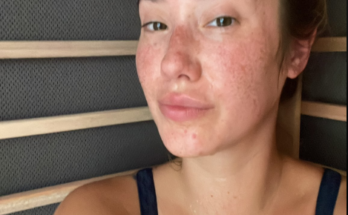Margaret Ekpo was born on 27 June, 1914 in Creek Town, Cross River State, to the family of Okoroafor Obiasulor and Inyang Eyo Aniemewue. She reached standard six of the school leaving certificate in 1934. However, tragedy struck at home with the death of her father in 1934, her goals of further education in teachers training was as a result put on hold. She then started working as a pupil teacher in elementary schools. She married a doctor who hails Ibibio ethnic group who are predominant in Akwa Ibom State, John Udo Ekpo, in 1938 while she was of Igbo and Efik heritage.
She later moved with her husband to Aba. In 1946, she had the opportunity to study abroad at what is now Dublin Institute of Technology, Dublin Ireland. She earned a diploma in domestic science and on her return to Nigeria she established a Domestic Science and Sewing Institute in Aba.
Ekpo’s first direct participation in political ideas and association was in 1945. Her husband was indignant with the colonial administrators treatment of indigenous Nigerian doctors but as a civil servant, he could not attend meetings to discuss the matter.
was a Nigerian women’s rights activist and social mobilizer who was a pioneering female politician in the country’s First Republic and a leading member of a class of traditional Nigerian women activists, many of whom rallied women beyond notions of ethnic solidarity. She played major roles as a grass root and nationalist politician in the Eastern Nigerian city of Aba, in the era of an hierarchical and male-dominated movement towards independence, with her rise not the least helped by the socialization of women’s role into that of helpmates or appendages to the careers of males.
Margare’s awareness of growing movements for civil rights for women around the world prodded her into demanding the same for the women in her country and to fight the discriminatory and oppressive political and civil role colonialism played in the subjugation of women. She felt that women abroad including those in Britain, were already fighting for civil rights and had more voice in political and civil matters than their counterparts in Nigeria. She later joined the decolonization-leading National Council of Nigeria and the Cameroons (NGNC), as a platform to represent a marginalized group.
In the 1950s, she also teamed up with Funmilayo Ransome-Kuti to protest killings at an Enugu coal mine; the victims were leaders protesting colonial practices at the mine. In 1953, Ekpo was nominated by the NGNC to the regional House of Chiefs, and in 1954 she established the Aba Township Women’s Association. As leader of the new market group, she was able to garner the trust of a large number of women in the township and turn it into a political pressure group. By 1955, women in Aba had outnumbered men voters in a citywide election.
Till her death on 21 September, 2006 she remained active as a political activist and freedom fighter.
Also Read: Gwede Mantashe Biography



